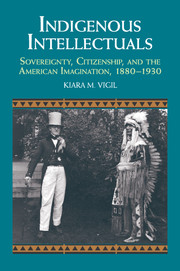Crossref Citations
This Book has been
cited by the following publications. This list is generated based on data provided by Crossref.
Harmon, Alexandra
2017.
A Companion to the Gilded Age and Progressive Era.
p.
124.
Le Corguillé, Fabrice
2020.
« She can talk on paper, too » : Sarah Winnemucca, une intellectuelle numa engagée.
IdeAs,
Dunlap, Leslie
2020.
A Companion to American Women's History.
p.
175.
Taylor, Melanie Benson
2020.
The Cambridge History of Native American Literature.
Ventura, Theresa
2020.
“I Am Already Annexed”: Ramon Reyes Lala and the Crafting of “Philippine” Advocacy for American Empire.
The Journal of the Gilded Age and Progressive Era,
Vol. 19,
Issue. 3,
p.
426.
Piatote, Beth H.
2020.
The Cambridge History of Native American Literature.
p.
233.
2021.
Speaking for the People.
p.
277.
2021.
Speaking for the People.
p.
1.
2021.
Speaking for the People.
p.
176.
Mielke, Laura L.
2021.
American Women's Regionalist Fiction.
p.
339.
2021.
Speaking for the People.
p.
221.
2021.
Speaking for the People.
p.
235.
2021.
Speaking for the People.
p.
35.
Temin, David Myer
2021.
Our Democracy: Laura Cornelius Kellogg’s Decolonial-Democracy.
Perspectives on Politics,
Vol. 19,
Issue. 4,
p.
1082.
2021.
Speaking for the People.
p.
77.
2021.
Speaking for the People.
p.
127.
Espinosa, Patricio
and
Bustamante-Kuschel, Gonzalo
2022.
Indigenous patrimonialization as an operation of the liberal state.
Philosophy & Social Criticism,
Vol. 48,
Issue. 6,
p.
882.
Bordino, Alex W.
2022.
Antimodernism and Indigenous Reconstruction: Proto‐Ethnographic Attractions in Early Cinema, 1894–1914.
The Journal of American Culture,
Vol. 45,
Issue. 1,
p.
34.
Soderberg, Laura
2024.
Data-Driven Childhoods: Settler Colonialism and Numeracy in the Boys’ Literature of Francis La Flesche and Francis Rolt-Wheeler.
American Literature,
Vol. 96,
Issue. 1,
p.
57.
Yu, Hyunjoo
2024.
Zitkala-Ša’s indisputably moody, vital evolution(s).
Nineteenth-Century Contexts,
Vol. 46,
Issue. 1,
p.
33.





